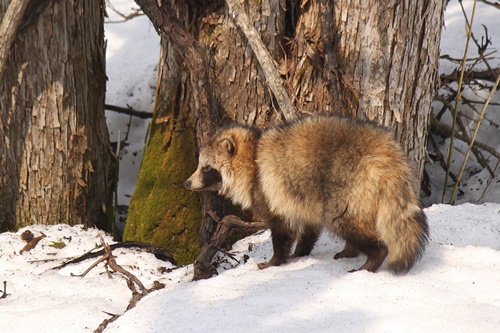The Nyctereutes procyonides albus have awakened from their winter hibernation.
I photographed them around the same time last year, so it seems this is generally the time that they end their winter sleep, although it’s likely the temperature and other factors have a role in determining the timing.
It may be because they’ve just awakened, but they seem to be moving slowly and have a somewhat vacant look in their eyes.
They will need to get sufficient nourishment, as their mating season will begin soon. However, they’ll probably have some difficulty finding food with the ground still covered with a lot of snow.
Photo: A Nyctereutes procyonides albus awakened from winter sleep Apr. 15
I photographed them around the same time last year, so it seems this is generally the time that they end their winter sleep, although it’s likely the temperature and other factors have a role in determining the timing.
It may be because they’ve just awakened, but they seem to be moving slowly and have a somewhat vacant look in their eyes.
They will need to get sufficient nourishment, as their mating season will begin soon. However, they’ll probably have some difficulty finding food with the ground still covered with a lot of snow.
Photo: A Nyctereutes procyonides albus awakened from winter sleep Apr. 15
